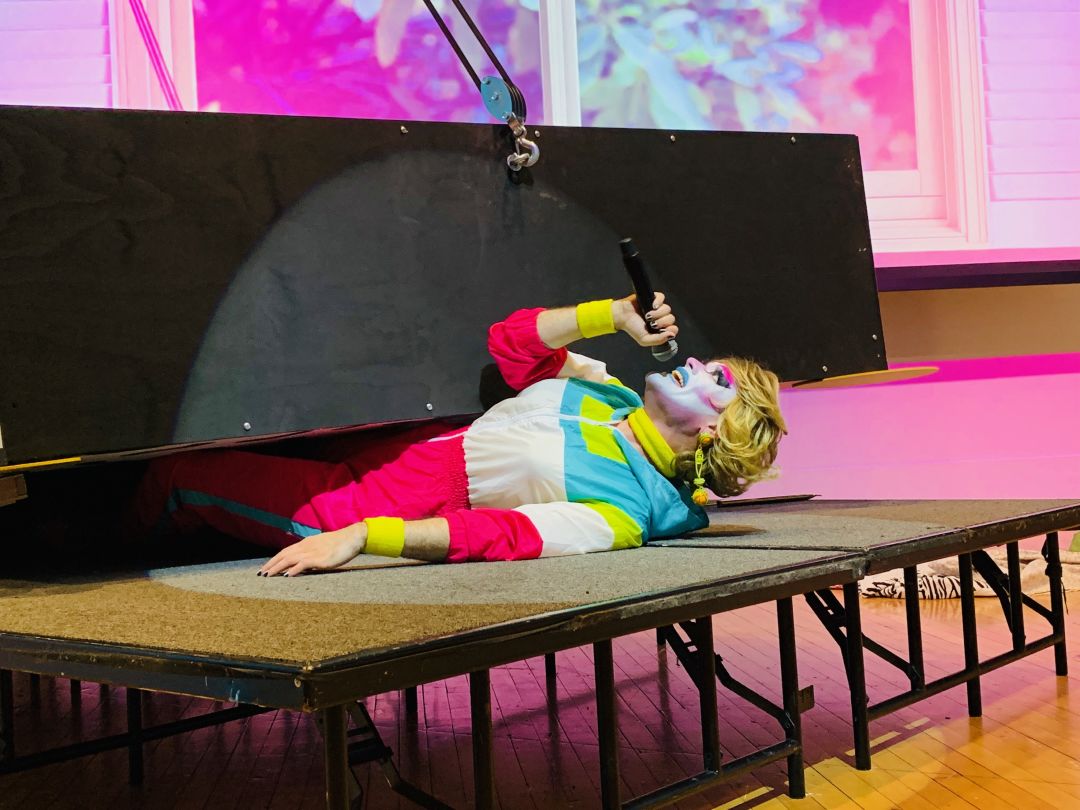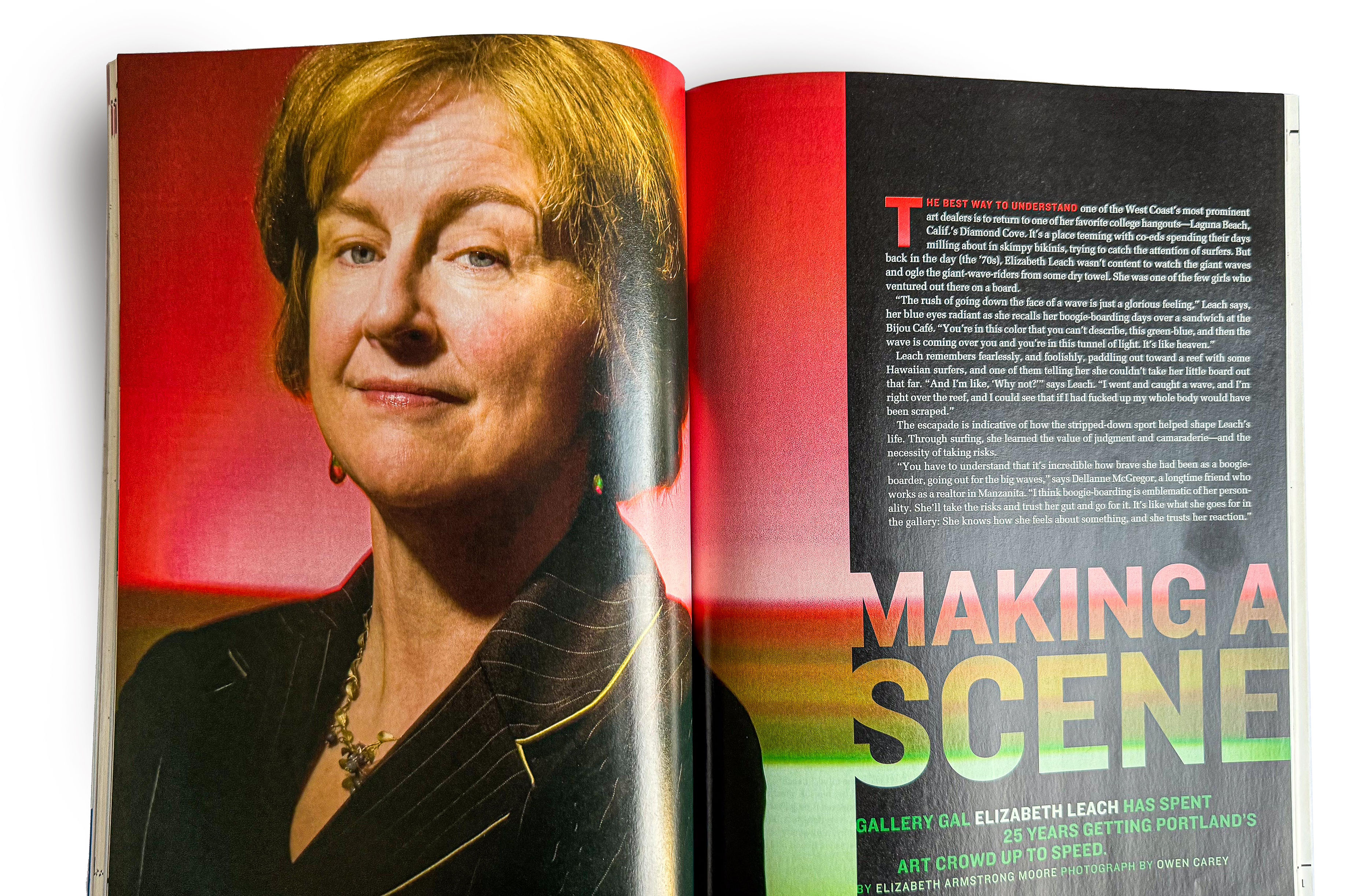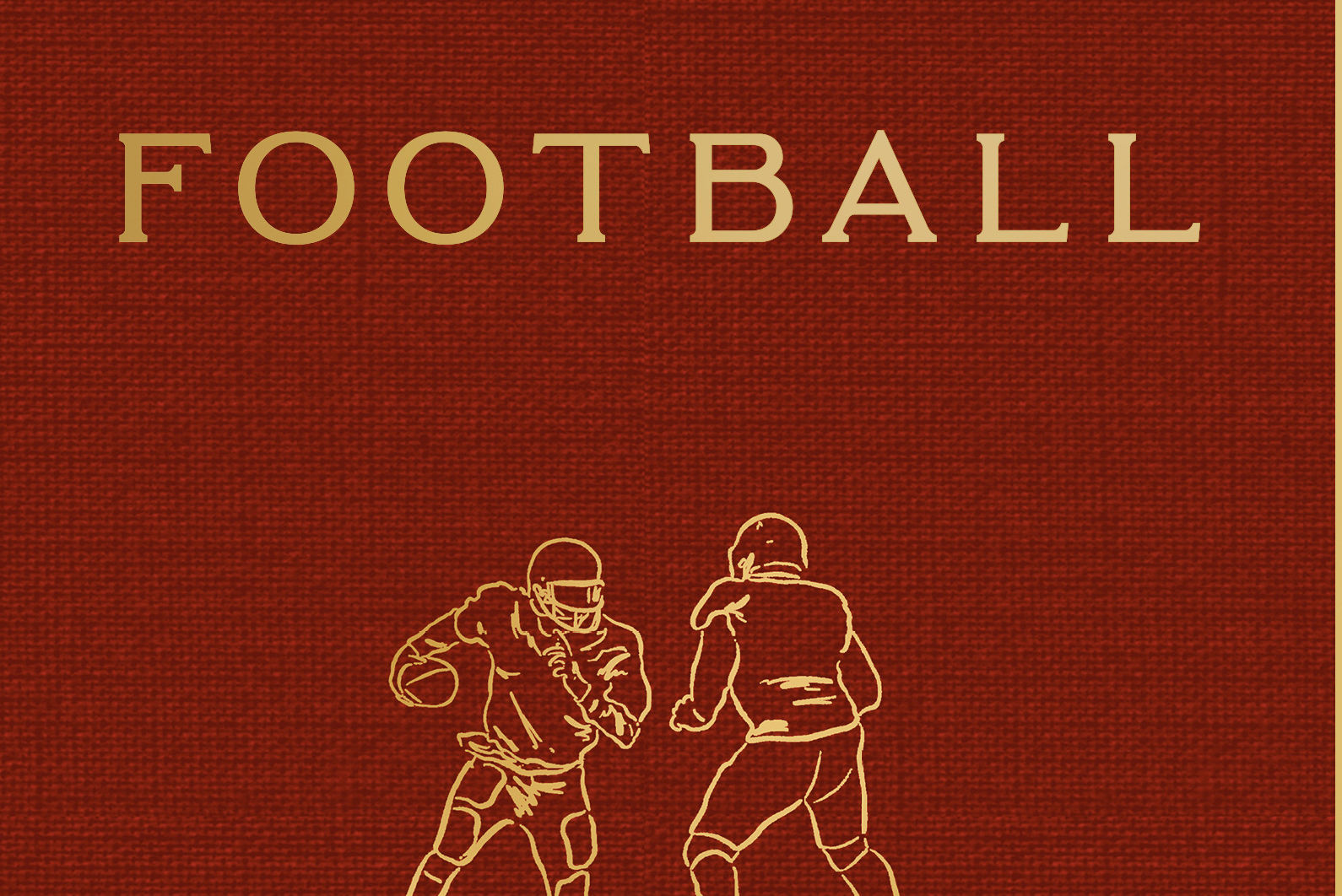What to Watch Out for at the 2021 Time-Based Art Festival

Carla Rossi/Anthony Hudson in Clown Down: Failed to Mount
Image: Matty Newton
The leaves are on the cusp of changing, and that can only mean one thing: the Time-Based Art Festival is upon us. TBA, the Portland Institute for Contemporary Art’s annual two-week performance art freakout, will return for its 19th iteration on Thursday. After a near-totally online program last fall, this year’s festival is a now-familiar hybrid beast, with some performances taking place exclusively online, some exclusively in person, and several offering combo IRL/digital experiences.
This year’s festival will run from September 16 through October 3, and we’ll be posting periodic updates as it unfolds. If you want to get in on the fun, you can purchase a pass here—they’re available on a pay-what-you-can sliding scale from $0-200. To help you plan your experience, here are five pieces we’re especially excited for:
Clown Down 2: Clown Out of Water
Streaming 12 p.m. Thu, Sept 16–6 p.m. Sun, Oct 3
Portland's preeminent drag clown Carla Rossi, a.k.a. Anthony Hudson, has authored and performed a slew of beloved solo shows over the last few years. At TBA, Carla will workshop a sequel to one of them—Clown Down: Failed to Mount—as a part of PICA's Indigenous Residency Series before it premieres in full in 2022. Trapped on a rock with an incontinent seagull while water levels rise and the planet warms, Carla meets a colorful array of puppets and projections; despite the grim logline, something tells us that Hudson, always a consummate entertainer, will find a way to filter in plenty of light.
There You Are
By appointment throughout the festival
Brooklyn performance artist Holland Andrews has been running this "micro-performance" throughout the pandemic, interrogating and shading in the possibilities of remote art in the process. Participants reserve specific time slots, during which Andrews will text them a series of questions designed to "connect them to the present moment." Andrews then calls and sings to the subject, over a pre-recorded track the subject controls. Plenty of art promises intimacy; it feels safe to say few pieces go this far in attempting to forge it.
Rich Kids
Streaming 7 p.m. Fri–Sun, Sept 17–19
This play, from UK playwright Javaad Alipoor, was set to tour Britain after an Edinburgh premiere in 2019. COVID changed plans, and Alipoor created a streaming version instead. Rich Kids (subtitle: "A History of Shopping Malls in Tehran") is a sequel to Alipoor's 2018 play The Believers Are But Brothers, and as its title suggests, it takes "successful and brutal people" to task, harnessing several social apps and streaming platforms to ask what they do with their "coddled and useless children." The Guardian called it "a provocative snapshot of a world speeding toward a cliff edge." We couldn't be more excited to check it out.
The Blue Walk
5 p.m. Fri, Sept 17, Field near Legacy Emanuel Medical Center
Pittsburgh artist Vanessa German calls this piece "a new ceremonial ritual" that seeks to heal the wounds of various Black communities through "a spectacle" of "rage, tenderness, rest, rhythm and the holiness of the Black body on the living planet." German has performed it in various cities and contexts across the country; on the first anniversary of George Floyd's murder, she led 12 blue-clad Black women through the streets of Pittsburgh where they sang, danced, and laid flowers. Portland's iteration will run for 30 minutes on the second night of the festival, beginning at the field near the Legacy Emanuel Medical Center in North Portland.
Let ’im Move You: Intervention
6 p.m. Thu–Fri, Oct 1–2, Eliot/Boise/Humboldt
Originally inspired by the 2016 Pulse night club massacre in Orlando, Intervention is a semi-guerrilla dance project designed to take place in historically Black American neighborhoods, with specific locations announced just hours before the performances begin. It's a part of Let ’im Move You, a project by choreographers Jumatutu M. Poe and Jerome Donte Beacham that celebrates J-Sette, a style of dance popular in Black gay club scenes that's gained mainstream appeal through pop objects like Beyoncé's "Single Ladies" video. The Portland iteration will take place in the Boise, Eliot, and Humboldt neighborhoods.




